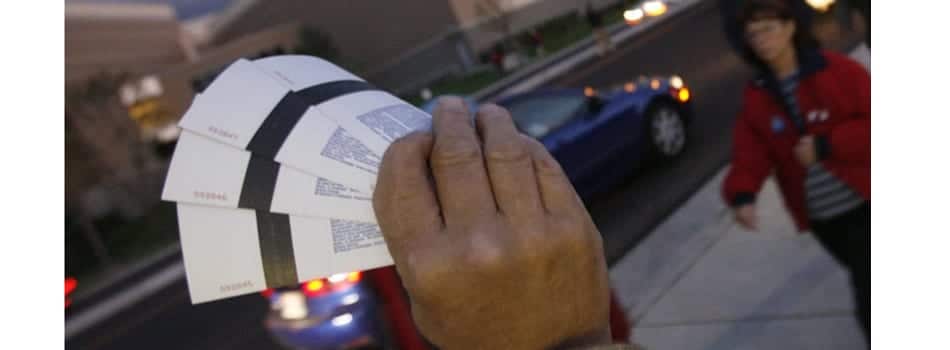After a media campaign spearheaded by the ownership of Twickets – a ticket marketplace with price caps on resale – three of the four major operators in the UK marketplace have agreed to substantial increases in transparency in listing of resale tickets. The lone holdout, Viagogo, is being threatened with court action by the Competition and Markets Authority should it not bring itself into compliance with the recommendations promptly.
StubHub, Seatwave and GetMeIn! (the latter two both owned by Ticketmaster) have all toed the line drawn by the CMA of late, agreeing to display the specific seats being offered for sale, who the seller on the other end of the transaction is, and whether there is any policy in place where the customer could conceivably be turned away at the door, such as when the Foo Fighters turned away hundreds of fans at London’s O2 Arena despite their having purchased valid tickets legally (because the band required the ID match the original purchaser name).
The move theoretically protects consumers against bad actors in the secondary world, a narrative driven hard by the Fan Fair Alliance, which generates copious ink in the UK any time a consumer pays more than face value for tickets and then complains about their purchase after the fact. Fan Fair Alliance was founded by Ian McAndrew and Harry Magree, who are both heavily invested in Twickets along with scores of industry insiders including the management of Noel Gallagher, One Direction and Olly Murs.
Some of the transparency requirements have been long-resisted secondary ticketing operators due to the possibility of rights-holders vindictively cancelling tickets listed for resale if they can be pinpointed via specific seat locations, despite resale being as-yet legal in the UK. But the force of the lobby seeking to hobble the market save for one operator owned by industry insiders spurred the government to act, in spite of ample evidence that resale price caps simply push consumers to unprotected and unregulated black markets at their own peril.
“We welcome the changes already made and new commitments we’ve been given by StubHub, Seatwave and GetMeIn! to improve the information on offer, so that people can better judge whether they’re getting a good deal,” says CMA executive director for enforcement Michael Grenfell. “But all secondary ticketing websites must play by the rules and treat their customers fairly if anything goes wrong. We take failure to comply with consumer protection law very seriously.
”So far Viagogo has failed to address our concerns, and we are determined to ensure they comply with the law. We are prepared to use the full range of our powers to protect customers – including action through the courts.”
In some U.S. states, including New York, it is unlawful for venue owners, teams, or concert promoters to cancel tickets for no reason other than their having been listed for resale. The New York Yankees recently butted against that law, as a ticket broker based in Maryland sued the team following its cancellation of dozens of season tickets for reasons the team couldn’t satisfactorily explain before a judge granted an injunction barring the team from selling the tickets to other consumers. Shortly after the injunction was granted, the team settled.
Those listing tickets for resale in the UK have no such protections in place, regardless of whether they are being listed by a family buying an extra pair of tickets to hopefully subsidize the exorbitant cost charged by the primary market, or an industrial-scale “ticket tout” as the Fan Fair Alliance and its media allies so frequently write about.
For now, the major players, save Viagogo, are all on board. Should promoters and venues resort to wholesale culling of tickets listed for resale, we’ll have to wait and see if it sticks for any length of time, or whether the market moves into the shadows rather than where fans are protected by legitimate businesses offering protections for their purchases.



